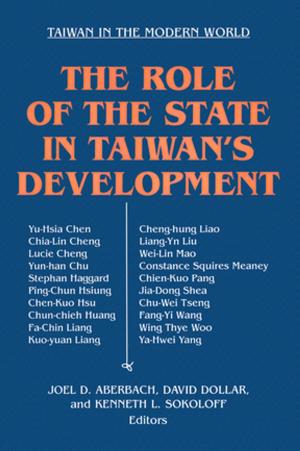African Cultural Values
Igbo Political Leadership in Colonial Nigeria, 1900–1996
Nonfiction, History, Africa, Social & Cultural Studies, Social Science, Cultural Studies, Ethnic Studies| Author: | Raphael Chijoke Njoku | ISBN: | 9781135528270 |
| Publisher: | Taylor and Francis | Publication: | October 23, 2013 |
| Imprint: | Routledge | Language: | English |
| Author: | Raphael Chijoke Njoku |
| ISBN: | 9781135528270 |
| Publisher: | Taylor and Francis |
| Publication: | October 23, 2013 |
| Imprint: | Routledge |
| Language: | English |
Although numerous studies have been made of the Western educated political elite of colonial Nigeria in particular, and of Africa in general, very few have approached the study from a perspective that analyzes the impacts of indigenous institutions on the lives, values, and ideas of these individuals. This book is about the diachronic impact of indigenous and Western agencies in the upbringing, socialization, and careers of the colonial Igbo political elite of southeastern Nigeria.
The thesis argues that the new elite manifests the continuity of traditions and culture and therefore their leadership values and the impact they brought on African society cannot be fully understood without looking closely at their lived experiences in those indigenous institutions where African life coheres. The key has been to explore this question at the level of biography, set in the context of a carefully reconstructed social history of the particular local communities surrounding the elite figures. It starts from an understanding of their family and village life, and moves forward striving to balance the familiar account of these individuals in public life, with an account of the ongoing influences from family, kinship, age grades, marriage and gender roles, secret societies, the church, local leaders and others.
The result is not only a model of a new approach to African elite history, but also an argument about how to understand these emergent leaders and their peers as individuals who shared with their fellow Africans a dynamic and complex set of values that evolved over the six decades of colonialism.
Although numerous studies have been made of the Western educated political elite of colonial Nigeria in particular, and of Africa in general, very few have approached the study from a perspective that analyzes the impacts of indigenous institutions on the lives, values, and ideas of these individuals. This book is about the diachronic impact of indigenous and Western agencies in the upbringing, socialization, and careers of the colonial Igbo political elite of southeastern Nigeria.
The thesis argues that the new elite manifests the continuity of traditions and culture and therefore their leadership values and the impact they brought on African society cannot be fully understood without looking closely at their lived experiences in those indigenous institutions where African life coheres. The key has been to explore this question at the level of biography, set in the context of a carefully reconstructed social history of the particular local communities surrounding the elite figures. It starts from an understanding of their family and village life, and moves forward striving to balance the familiar account of these individuals in public life, with an account of the ongoing influences from family, kinship, age grades, marriage and gender roles, secret societies, the church, local leaders and others.
The result is not only a model of a new approach to African elite history, but also an argument about how to understand these emergent leaders and their peers as individuals who shared with their fellow Africans a dynamic and complex set of values that evolved over the six decades of colonialism.















